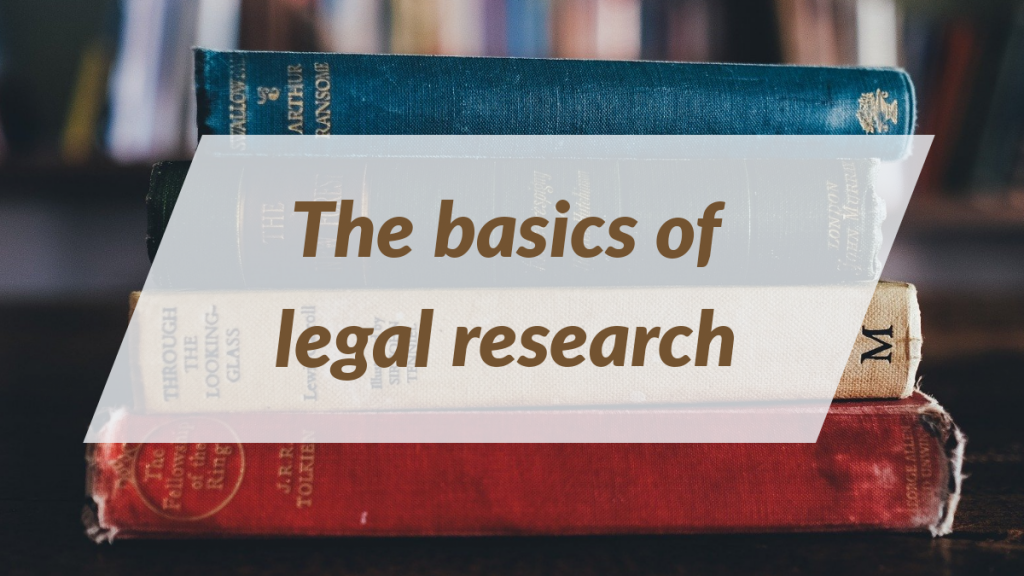One of the crucial skills a budding lawyer needs to learn is legal research. The legal field presents different problems to a lawyer every day. People are different, they act differently, and hence each case is peculiar. So, legal research is the most basic skill which a student shall acquire before applying for internships or jobs or before becoming a lawyer. Legal research means understanding the legality of an issue at hand. Search for the legality of a subject can be done with the help of multiple resources available in our libraries and online. Legal research can help you with conducting legal work in a law office or research papers or articles. In this article we will focus on the basics of legal research, various resources and a small step by step process.
Ascertain the Legal Question
The first step to find a solution is to find what is the exact question. While going through a case, we need to find what is the legal issue that we want to know about. You should understand the scope of your question otherwise you adrift in the sea of knowledge. This is the most basic part in the basics of legal research.
Preliminary Research
Once you know what exactly you want to research. Conduct a preliminary research using search engines like Google, Bing or DuckDuckGo. You can also look in the books available in your library. This can help you find some starting points for a detailed research.
Primary and Secondary Sources
Primary sources of legal research include Bare Acts, Bills, Judgements of Supreme Court and High Courts (precedents) and the Circulars issued by the government bodies like Reserve Bank of India, SEBI etc. These resources do not require any additional resource to prove the authenticity as these primary sources formulate the laws of the land.
Secondary Sources includes the interpretation, law reviews, articles, and research papers. Secondary sources are a good way to start research. These sources needs to be underpinned by the primary sources for their authenticity. Some other secondary sources involve online repositories of legal documents such as LexisNexis, Manupatra, SCC Online etc. These resources can be highly beneficial as they do not consume much time and can be accessed through Internet. Kindly do not use Wikipedia as a good and authentic source for legal research.
Make a Repository of the Research Data
Legal research can be extensive and lengthy process. An organised repository of the primary and secondary resources can help you navigate through all the documents without getting lost. You can maintain an Excel file and mention the topic, URL or location (Page numbers of books, folder name etc.). For research papers or literary research most effective way is to write down the footnotes. You can write Footnotes in accordance with Bluebook, OSCOLA or any other standards of the footnoting.
Hope this helps you! If you have something to add to this ‘basics of legal research’, feel free to comment below!
Do subscribe to our Telegram channel for more resources and discussions on tech-law. To receive weekly updates, and a massive monthly roundup, don’t forget to subscribe to our Newsletter.
You can also follow us on Instagram, Facebook, LinkedIn, and Twitter for frequent updates and news flashes about #technologylaw.

